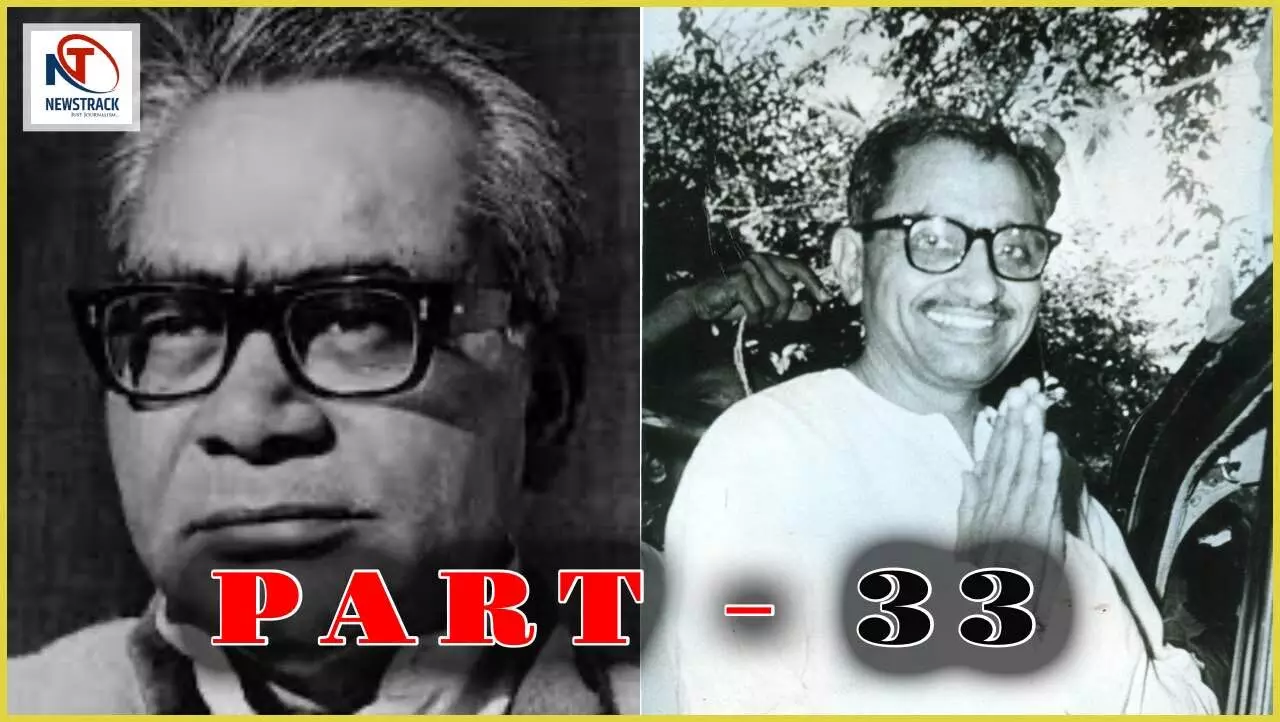TRENDING TAGS :
Book Part 33: Antyodaya Socialism – A Manifesto for India’s Future
Ram Manohar Lohia and Deen Dayal Upadhyay Book Part 33: this final chapter presents a composite manifesto — not merely for governance, but for civilizational renewal.
Ram Manohar Lohia and Deen Dayal Upadhyay Antyodaya Socialism Yogesh Mishra Book Part 33
At the convergence of ethics and economy, tradition and transformation, and individual dignity and collective welfare, arises a new political philosophy for India — Antyodaya Socialism. Drawing from the timeless values of Deendayal Upadhyay’s Integral Humanism and the revolutionary fire of Ram Manohar Lohia’s Socialism, this final chapter presents a composite manifesto — not merely for governance, but for civilizational renewal.
1. Foundational Principles
Antyodaya Socialism rests on five non-negotiable pillars:
1. The Last Person First — Every policy must prioritize the most deprived.
2. Integral Development — Economic growth must harmonize with culture, ecology, and ethics.
3. Decentralization of Power — True democracy begins in villages, not capitals.
4. Cultural Confidence — Indian identity must shape, not be shaped by, globalization.
5. Ethical Leadership — Politics is sadhana, not a business.
2. Economic Vision: Human-Centered and Self-Reliant
• Promote local economies and swadeshi industries
• Ensure universal basic needs — food, shelter, healthcare, education
• Bridge wealth gaps through cooperatives, community ownership, and social credit systems
• Measure progress not only by GDP, but by gross moral product
3. Political Framework: Participatory and Transparent
• Empower gram sabhas, urban mohalla sabhas, and local governance
• Reform electoral systems to ensure honesty, accessibility, and gender parity
• Implement Right to Participation — citizen’s direct role in development plans
• Abolish dynastic, criminal, and corporate control over democratic spaces
4. Social Justice: Inclusion with Dignity
• Eradicate caste discrimination through education, economic justice, and representation
• Implement gender justice, not just in law but in life
• Protect minority rights while building shared national culture
• Foster Samajik Samrasata — social harmony based on mutual respect
5. Cultural Regeneration: Rooted Modernity
• Make Indian languages the medium of governance, science, and education
• Revive folk traditions, festivals, and dharmic philosophies as tools of consciousness
• Reform temples, universities, and media as custodians of civilizational wisdom
• Resist cultural colonization through art, curriculum, and daily life
6. Ecological Wisdom: Earth as Mother, Not Market
• Prioritize renewable energy, organic farming, and decentralized water systems
• Restore rivers, forests, and indigenous biodiversity
• Blend spiritual ecology with science — reviving panchabhuta-based ethics
• Treat environment protection as national duty and personal vow
7. Education as Liberation
• End the monopoly of English — promote multilingual public education
• Integrate ethics, civics, dharma, and skills from early education
• Make universities centers of free thought, not factory-model certification
• Empower teachers as nation-builders, not bureaucratic cogs
8. Spiritual Democracy
• Foster faith with reason, and reason with compassion
• Encourage interfaith dialogue grounded in shared Indic values
• Embrace dharma as moral compass, not religious dogma
• Build a state that is spiritually informed, but politically impartial
Conclusion: Towards a Rashtra That Serves All
Antyodaya Socialism is not a merger of ideologies — it is a moral evolution. It inherits Lohia’s fire and Upadhyay’s depth. It does not aim to seize power, but to reshape power as service. It sees India not just as a republic of votes, but as a civilization of values.
In a time of chaos and confusion, this manifesto stands as a clarion call: to think boldly, act ethically, and serve humbly. To remember that the real revolution does not begin in Parliament — it begins in the mind, the village, and the heart.
Let this be India’s new tryst with destiny — not just freedom from oppression, but freedom to uplift, to unite, and to evolve.


